Herbs That Are Safe During Pregnancy: Althea officinalis / Marshmallow Root
_________________________________________________________________________________ Is Althea officinalis safe throughout pregnancy? - Yes, but it is an herb that must be used with great caution as it can lower estrogen levels and cause miscarriage, especially in the first trimester. As such, it should only be used in the second and third trimesters, and only irregularly and infrequently.Is Althea officinalis safe while breastfeeding? Althaea officinalis is a galactagogue that can increase breastmilk production naturally.
How can Althea officinalis be used during pregnancy? - Althea officinalis can be used to treat a kidney infection, Shigella, or Haemophilus influenza, among other things. ____________________________________________________________________________________ WARNING: This herb must be used with caution during pregnancy. A hot water extract of this plant acts as an herbal abortifacient. During pregnancy, you can work with a cold infusion of the herb and external applications. Althea officinalis is also spelled sometimes as Althaea officinalis. This herb is also known as marshmallow root, shemaitute, or Khatmi in Unani medicine, is an important mucilaginous plant from the Malvaceae family that can be used in moderation during pregnancy to treat a number of health issues. The leaves and the root of this plant have slightly different medicinal actions and they’re used in different contexts, so pay attention to the Althea officinalis product to make sure that it contains the proper plant parts to treat the symptoms that are plaguing you. The root is the strongest demulcent agent.
This herb should not be used regularly during pregnancy and it should not be used at all during the first trimester of pregnancy. Rather, it can be used irregularly and infrequently to treat discomfort caused by urinary tract infection, a dry, persistent cough, or severe pain due to gastrointestinal problems. In other words, use this herb to relieve discomfort that is not able to be relieved using other herbs, but only take one dose per week at the most during pregnancy. Althaea officinalis has been shown to significantly lower estrogen levels in animal models which can cause miscarriage or stillbirth during pregnancy in humans. Nonetheless, an herb like Althaea officinalis or Khatmi (in the Unani medical system) can be valuable to have on hand for painful urinary tract or kidney infections during pregnancy. Today’s modern “marshmallow” comes from a confection that was once made in ancient Egypt using Althea officinalis. Today’s commercial marshmallows that you might find at the local grocery store don’t contain Marshmallow Root (or any other nutritional substance) anymore, but you can still make medicinal marshmallows at home using this mucilaginous herb, just don’t eat them while pregnant. As a nutritive herb, Althea officinalis has been used for centuries as a food in addition to being used as an herbal medicine. Althea officinalis is regarded as a very safe herb with low toxicity levels despite its broad medicinal action on the body. This herb can be helpful after childbirth as an herbal remedy for breast engorgement.
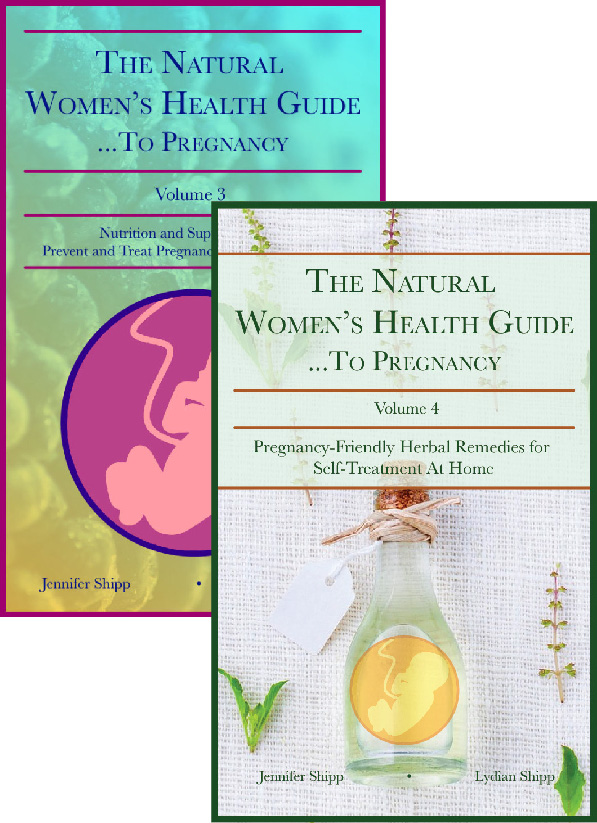
"The Natural Women's Health Guide... to Pregnancy - BUY HERE!"
Pregnancy-Friendly Nutrients Found in Althea officinalis
Iodine for a Healthy Pregnancy and a Healthy Baby
This herb contains some important nutritional substances that explain, to some extent, its medicinal action on the body. Specifically it contains the following:- Iodine
- Vitamin B complex
- Zinc
Most people, especially pregnant women in all regions of the world today, are deficient in Iodine. Iodine plays a huge role in fertility, reproductive organ function, reproductive hormone levels, and respiratory function (which is heavily impacted by our reproductive hormone levels). Iodine deficiency causes asthma. In other words, Lugol’s iodine 2% (which contains two forms of iodine that feed the thyroid gland and also the reproductive organs) is a cure for asthma. But iodine is also a cure for infertility, PCOS, and endometriosis as well as other disorders of the female reproductive system. Lugol’s iodine 2% is also a cure for a number of autoimmune diseases by virtue of its ability to restore order to the immune system. In order for the body to absorb iodine, people often take a list of supportive ingredients including vitamin B complex and zinc, two nutrients that are found in marshmallow root. Other supportive ingredients that might help Lugol’s iodine work even better to treat respiratory system and reproductive system problems during pregnancy include selenium (200 mcg), magnesium glycinate (200-600 mg per day), and vitamin K2 / MK-7 (200-400 mcg per day).
If you have a bladder or a kidney infection during pregnancy, you may want to administer Lugol’s iodine rather than taking Althea officinalis. Lugol’s iodine is safe for use during pregnancy and in fact, this nutrient helps insure a healthy baby and a healthy delivery.
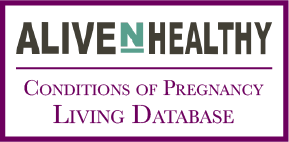 The Conditions of Pregnancy Living Database - NOW AVAILABLE! Click here to learn more...
The Conditions of Pregnancy Living Database - NOW AVAILABLE! Click here to learn more...
Iron and Vitamin C for Blood Production and to Prevent Postpartum Hemorrhage Naturally
- Iron
- Vitamin C
Calcium and Phosphorus to Heal a Cavity Naturally During Pregnancy
- Calcium
- Phosphorus
Calcium and phosphorus are the key players in dental health. And dental health is key to general health. But if you’re exposed to fluoride in drinking water or in toothpastes during pregnancy, fluoride will disrupt the natural calcium-phosphorus bond that produces the impenetrable hydroxyapatite enamel crystals in teeth and bones. Fluoride has certain chemical characteristics that makes it possible for it to masquerade as phosphorus and the dental industry has taken advantage of this fact. In teeth, fluoride makes a much less strong bond with calcium than phosphorus, leaving teeth vulnerable to cavities as a result. If you have poor dental health or, if you need to treat a dental cavity during pregnancy, consider using Althea officinalis and vitamin K2 treatment to heal a cavity naturally during pregnancy. Click here to read more about how to heal cavities naturally using vitamin K2 and coconut oil-based toothpaste. NOTE: If you are using Althea officinalis in a toothpaste during pregnancy, exposure to the medicinal agents that can lower estrogen levels would be limited given the small dose. Thus, the use of this herb to heal cavities naturally during pregnancy would likely be safe to use as a long-term, natural cavity- prevention herb.
Althea officinalis: Herbal Remedy for Gestational Diabetes
Althea officinalis has been investigated for its hypoglycemic and hypolipidemic effects that can be extremely useful in the natural treatment of gestational diabetes. However, this herb should not be used frequently during pregnancy and it should not be used at all during the first trimester due to its ability to lower estrogen levels. Rather, you can take Althea officinalis as an adjunct treatment for high blood sugar spikes with other pregnancy-safe herbs like Melissa officinalis. Melissa officinalis is a gold-standard herbal remedy for gestational diabetes, but if you experience a spike in blood sugar, you can take Althea officinalis an hour before or after a dose of Melissa officinalis to enhance the blood sugar lowering effect of these herbs.The alcoholic extract of the marshmallow ROOT is the most powerful medicinal plant part responsible for anti-diabetic effects during pregnancy. Even relatively small doses of the herb are able to lower blood sugar levels during pregnancy while also lowering levels of cholesterol, triglycerides, and LDL cholesterol.
To use Althea officinalis as an herb to treat gestational diabetes, administer a root alcohol tincture three times daily for only one day at a time according to the dosage instructions at the end of this discussion. Take only one or two doses, if possible. Also note, however, that Althea officinalis is able to lower blood sugar levels naturally as an herbal tea (administered as a cold infusion, not as a hot tea) if you only have dried herb available at the time when you need it.
Althea officinalis: Herbal Remedy for Kidney Infection During Pregnancy
Do not use Althea officinalis during the first trimester of pregnancy because it lowers estrogen levels. During the first trimester of pregnancy, a precipitous lowering of estrogen can cause the body to initiate miscarriage.Use Althaea officinalis with caution during the second and third trimesters. Use only low doses infrequently to treat the symptoms of disease. Althea officinalis can be combined with blueberry juice, cranberry juice and other pregnancy-friendly herbs for UTI like Guduchi, Zea mays / Corn Silks, or Urtica dioica / Stinging Nettle to treat the discomforts caused by urinary tract infections during pregnancy. Though Althea officinalis wouldn’t be a first choice as a front-line cure for a UTI during pregnancy due to the fact that it is less powerful as an antibiotic than other herbs like Guduchi or even blueberry or cranberry juice, Althea officinalis can help make the healing process more comfortable by soothing inflamed membranes in the kidneys and in the bladder. Again though, remember that this herb can lower estrogen levels which is undesirable during pregnancy, so take it only on an as-needed basis with no less than 7 to 10 days between 3-dose marshmallow root treatments.
Consider drinking Trifolium pratense tea to administer compensatory phytoestrogens while taking Althaea officinalis.
Note that most women who have a kidney infection while pregnant should practice double-voiding as a part of their healing protocol to ensure that urine is not pooling inside the bladder in a reservoir that prevents full recovery from the infection.
Click here to read more about how to get rid of a UTI during pregnancy.
Althea officinalis: Herbal Remedy for Severe Infection During Pregnancy
Pregnant women do occasionally take Althea officinalis short-term to treat specific discomforts, low back pain, or digestive issues. To be successful using this herb, it’s important to be mindful of your estrogen levels. As we noted above, Trifolium pratense is a pregnancy-safe herb that contains phytoestrogens, but other herbs such as Wild Yam / Dioscorea villosa can also support to production of estrogen as well as progesterone during pregnancy by providing the essential precursors for these reproductive hormones.If a pregnant patient develops a severe infection it can be life-saving to have herbal remedies on hand that have been studied as agents that can treat the specific pathogen afflicting the patient. Though Althea officinalis should not generally be used to treat a severe infection with long-term (7 days or more), regular, frequent dosing, in theory it would be possible to use this herb for severe infection if the woman also took doses of other estrogenic herbs such as Trifolium pratense or Dioscorea villosa. I wouldn’t recommend doing this unless you intend to pay close attention to the pregnant patient by keeping a journal of the effects and any changes that occur over the course of treatment.
For example, if my pregnant daughter became ill with Shigella dysenteriae or Haemophilus influenza while pregnant and doctors were unable to find a treatment to overcome the disease, I wouldn’t hesitate to work with Althea officinalis by administering three doses daily along with three daily doses of Trifolium pratense and Dioscorea villosa. Because Althea officinalis is one of just a few pregnancy-safe herbs that has been studied in terms of its effects on Shigella and Haemophilus influenza, and because this herb is nutritive and it also alleviates pain and discomfort in the digestive system, it would likely benefit my sick daughter and, as long as her estrogen levels stayed at a normal, pregnancy-level, the herb might also benefit the baby.
Use your intuition while working with this herb during pregnancy and follow the dosing protocol.
Althea officinalis: Medicinal Effects
-
- Demulcent
- Emollient
- Vulnerary
- Astringent
- Analgesic / Natural Pain Reliever
- Lumbago / Low Back Pain Treatment
- Treats Mastitis / Breast Inflammation
- Treats Pelvic Inflammatory Disease / PID
- Painful Breast Engorgement Treatment
- Natural Sunscreen
- Antimicrobial
- Antifungal
- Candida albicans
- Dysphagia Treatment / Treats Difficulty Swallowing
- Antibacterial
- Studies have shown that Althea officinalis water extracts have less antibacterial activity than alcohol-based extracts / tinctures. If you wish to use Althea officinalis as an antibacterial agent, it must be prepared as an alcohol-based tincture.
- Pseudomonas aeruginosa
- Escherichia coli
- Staphylococcus aureus
- Drug-Resistant Staphylococcus aureus
- Listeria monocytogenes
- Acidovorax facilis
- Bacillus sp.
- Enterobacter hormachei
- Proteus vulgaris
- Kocuria rosea
- Salmonella typhimurium
- Klebsiella pneumoniae
- Shigella dysenteriae
- Aspergillus niger
- Aspergillus fumigatus
- Aspergillus flavus
- Rhizoctonia solani
- Fusarium oxysporum
- Haemophilus influenza
- Streptococcus pyogenes
- Studies have shown that Althea officinalis water extracts have less antibacterial activity than alcohol-based extracts / tinctures. If you wish to use Althea officinalis as an antibacterial agent, it must be prepared as an alcohol-based tincture.
-
-
- Porphyromonas gingivalis
-
-
-
- Prevotella spp.
-
-
-
- Actinomyces odontolyticus
-
-
-
- Veilonella parvula
-
-
-
- Eikenella corrodens
-
-
-
- Fusobacterium nucleatum
-
-
-
- Peptostreptococcus
-
-
-
- Capnocytophaga gingivalis
-
-
- Anti-inflammatory
- Alterative
- Nutritive
- Wound Treatment (used as a compress or as a paste)
- Pityriasis Lichenoides et Varioliformis Acuta / Mucha-Habermann Disease
- Pityriasis Rosea
- Reiter Syndrome / Reiter's Syndrome / Reactive Arthritis
- Rheumatoid Arthritis
- Osteoarthritis
- Tremors
- Whooping Cough / Pertussis
- Coughing up Blood / Hemoptysis / Haemoptysis
- Insect Stings / Insect Bite Treatment
- Immunomodulating
- Polysaccharides stimulate phagocytosis
- Hypoglycemic
- This herb can be used to treat gestational diabetes during pregnancy. It has an anti-diabetic effect on the body.
- Hypolipidemic
- Reduces cholesterol levels
- Marshmallow leaf is used to treat urinary tract diseases and disorders
- Diuretic
- Urinary Tract Infection
- Cystitis
- Urethritis / Inflammation of the urethra
- Anti-lithic / Herbal Remedy for Urinary gravel
- Kidney stones
- Bladder stones
- Marshmallow leaf is used to treat respiratory infection
- Herbal remedy for dry, irritating cough
- Herbal remedy for pharyngitis / Sore Throat
- Expectorant
- Anti-tussive / Natural Cough Remedy
- Natural Asthma Treatment
- Digestive System Treatment
- Natural Laxative
- Natural Treatment for diverticulitis
- The root is used to treat inflammatory disorders of the digestive system
- Herbal Remedy for Irritable Bowel Syndrome / IBS
- Herbal Remedy for Inflammatory Bowel Disease
- Treats inflammation in the mouth when used as a gargle
- Mouth Ulcers
- Throat Ulcers
- Treats Gastritis / Stomach Inflammation
- Treats Peptic Ulcers
- Treats Colitis
- Herbal Remedy for Crohn’s Disease
- Herbal Remedy for Ulcerative Colitis
- Herbal Remedy for Ulcerative Proctitis
Althea officinalis: Contraindications
If you are taking prescription medications or other herbal remedies during pregnancy, Althea officinalis can delay the absorption of these agents if you take it simultaneously with other doses of medicine. Althea officinalis creates a mucilaginous layer that protects tissues in the digestive system. In other words, if you’re taking other pregnancy-friendly herbs or prescription medications, be sure to separate your Althea officinalis dosages from those other medicines by at least 1 hour (before and after) to ensure that the other medicines are properly absorbed. Note that Althea officinalis lowers estrogen levels in the body. This is why it should only be used short term during pregnancy using infrequent, low doses.Althea officinalis Dosage
WARNING: Do not use Althea officinalis during the first trimester of pregnancy because it lowers estrogen levels. During the first trimester of pregnancy, a precipitous lowering of estrogen can cause the body to get confused and initiate miscarriage.Use Althaea officinalis with caution during the second and third trimesters. Use only low doses infrequently to treat the symptoms of disease. Althaea officinalis should be used in moderation during pregnancy because it lowers estrogen levels in the body. During pregnancy, estrogen levels need to stay relatively high. Taking repetitive doses of an herb like Althea officinalis that lowers estrogen levels can cause miscarriage. On the other hand, taking one doses of this herb can help treat UTI symptoms during pregnancy or it can be used to get rid of a persistent, dry cough that keeps a pregnant woman awake all night. There are times and situations when this herb might be beneficial, but it should always be used with great care during pregnancy.
Althea officinalis Dried Herb / Cold Infusion
Prepare Althea officinalis root, leaves, or flowers by putting 2-5 grams per cup of cold water in a glass container. Make sure the herb is covered completely by the water and then allow it to sit overnight in the refrigerator for 24 hours.Administer 6-15 grams daily in 3 divided doses. In other words, if you wish to administer a lower dose of this herb (this is recommended when beginning treatment with an herb during pregnancy), put 6 grams of Althea officinalis in 3 cups of cool water. Put the herb-water mixture in the refrigerator overnight to allow it to steep as a water extraction. About 24 hours later, pour and strain the water out of the container, separating out the herbal parts out using a colander. Administer one-third of the remaining cold infusion up to 3 times per day.
After you take the initial dose, pay attention to how the herb makes you feel. Increase the dose up to the maximum amount recommended if you feel like you need stronger medicinal action.
Althea officinalis Tincture
Some sources say that Althea officinalis is best as a glycerol-water extraction. But, if you’re hoping to use this herb as an antibacterial agent, it’s vital to note that the water extractions may not have any antibacterial activity and glycerol extracts may not be as effective as alcohol extracts. Scientific studies have shown that methanol/alcohol extracts have significant antibacterial activity. For this reason, we link to both the vegetable glycerin HawaiiPharm product as well as the alcohol extract for Althea officinalis.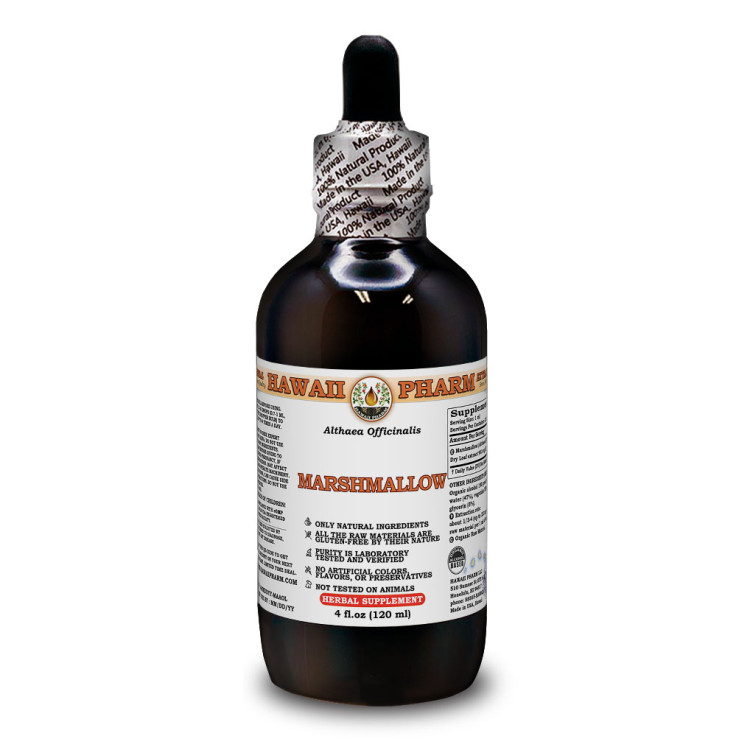
Click here to buy Althaea officinalis / Marshmallow Root Non-Alcoholic extract here.
If you are pregnant and you’re worried about using an alcohol extract, it’s important to note that a very small quantity of alcohol won’t be harmful to a growing fetus and, in fact, a small quantity of alcohol can sometimes be medicinal during pregnancy. If you are looking for a safe antibiotic herb to use during pregnancy, Althaea officinalis would work best in this capacity in an alcohol tincture.
Buy Althaea officinalis / Marshmallow Root alcohol extract here.
Althea officinalis Syrup
Note that in Unani medicine, honey is used as a “corrective” agent. Honey prevents unwanted side effects associated with the use of Althea officinalis. Prepare a syrup by making a cold infusion of Althea officinalis as described above. Create an infusion of 600 mL / 1 pint. Add this infusion to 500 grams / 1 lb. of honey and heat slowly, bringing the mixture just to the simmering point. Then, turn off the heat, allow the syrup to cool and store it in sterilized bottles with screw-top lids that are slightly loosened.Administer 2-30 mL of syrup daily.
Herbal Chest Rub for Pregnancy
Use an emulsifying ingredient such as carnauba wax to combine a preparation of the cold infusion of Althea officinalis with the nutrient-rich, healing of an oil such as cold-pressed, organic grapeseed oil.Althea officinalis: Herbal Mouthwash to Heal Cavities During Pregnancy
Use the cold infusion recipe. Store it in the refrigerator for up to 4 days. Use 1 teaspoon-1 tablespoon of the cold infusion daily as an herbal mouth wash to remineralize teeth and heal a cavity during pregnancy without going to the dentist. Be sure to read this article about how to remineralize teeth and take the other necessary, recommended nutrients (vitamin K2 / MK-7) as well. And note that in order for this herbal mouthwash to heal a cavity, you need to stop using vegetable-glycerin-based toothpastes and replace the toothpaste with a homemade coconut oil toothpaste. Also avoid vegetable glycerin in processed foods as well, as the vegetable glycerin clogs the pores in the teeth, making it impossible for the teeth to remineralize. Click here to read the additional guidelines for remineralizing teeth. Click here to subscribe to the Living Database!
Click here to subscribe to the Living Database!
Resources:

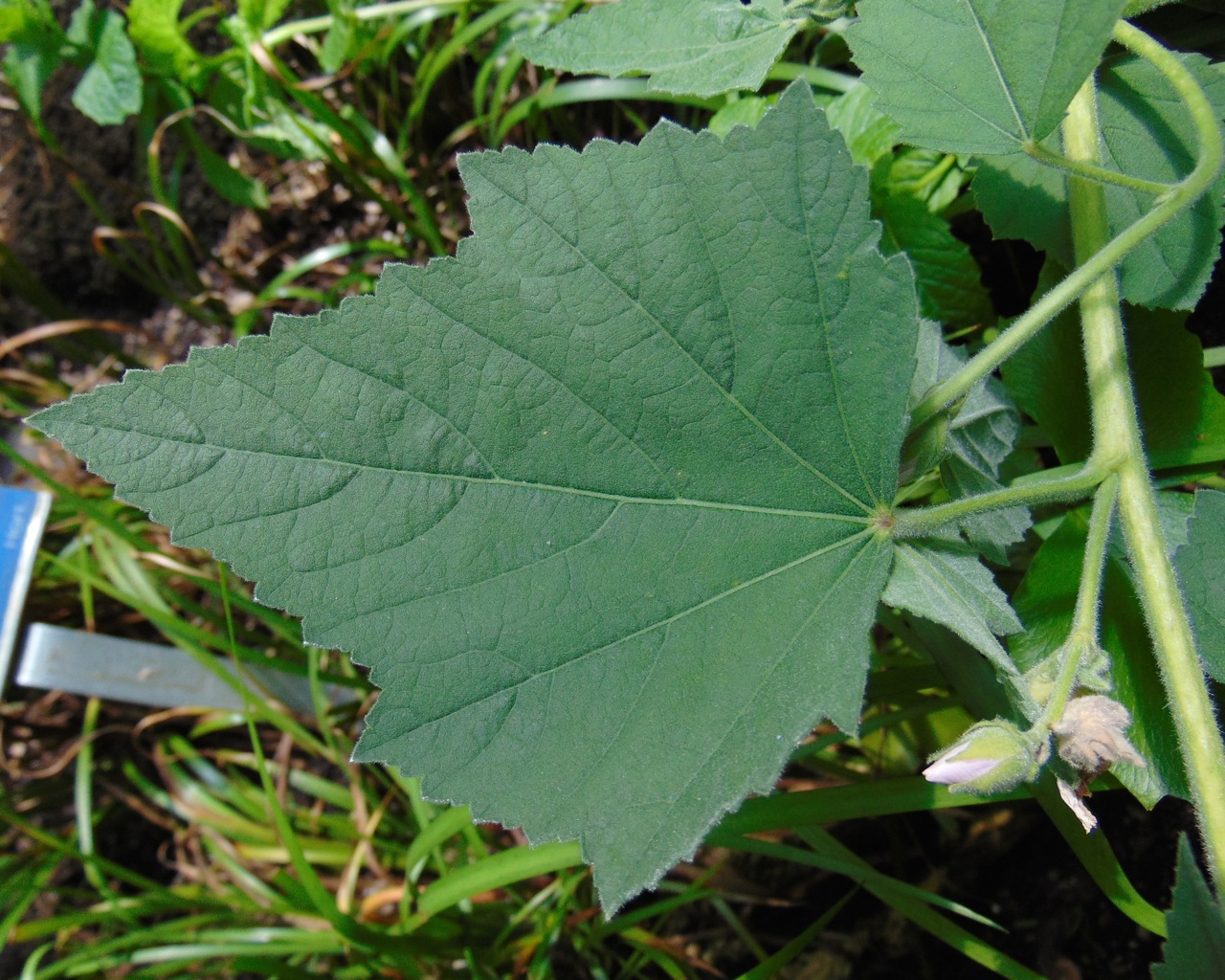 Marshmallow Root or Althea officinalis is a pregnancy-friendly herb with a low toxicity that can be used to treat a variety of health problems.
Marshmallow Root or Althea officinalis is a pregnancy-friendly herb with a low toxicity that can be used to treat a variety of health problems.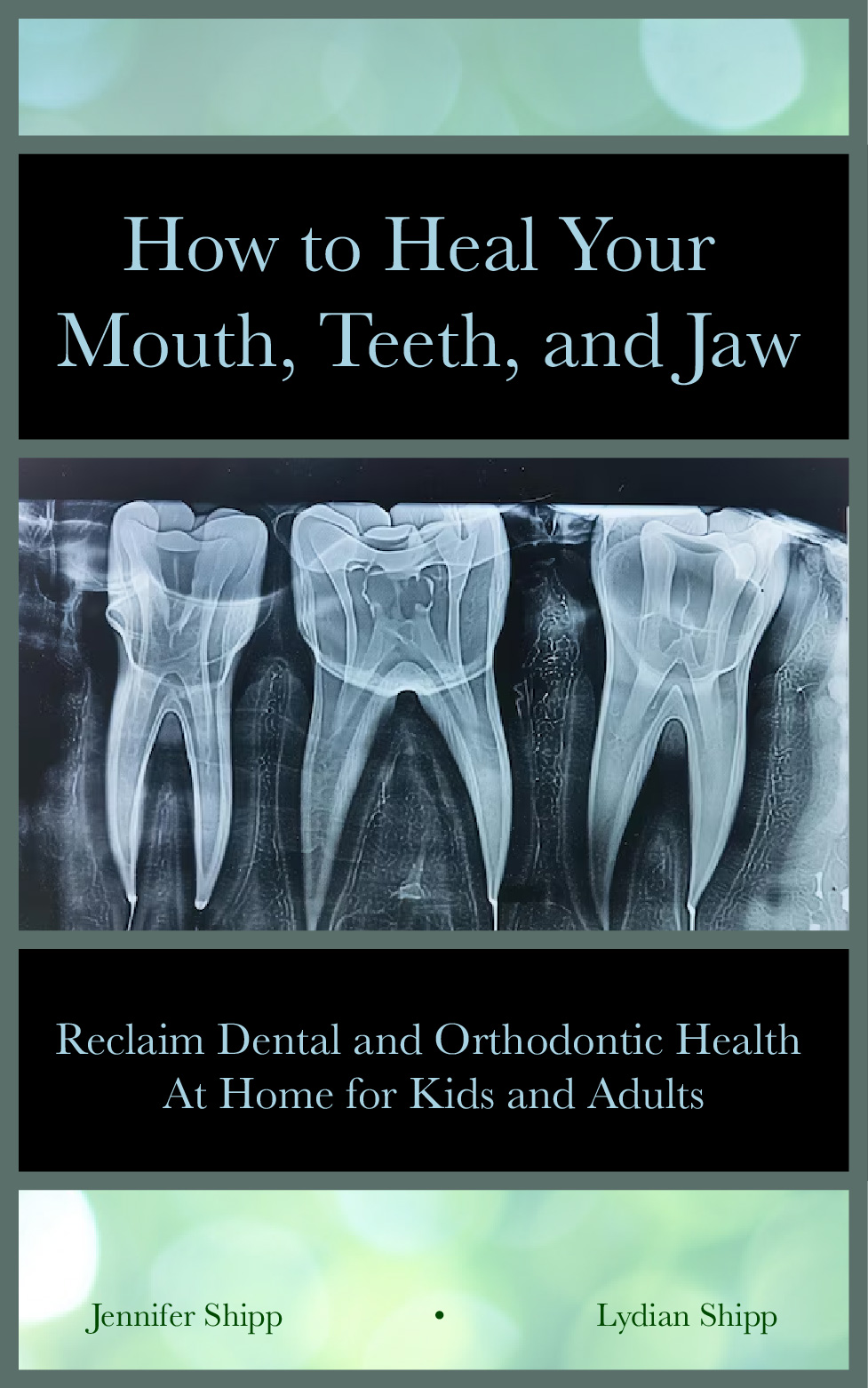
 Organic Marshmallow Root Herb 4 oz. (113g), USDA Certified Organic Marshmallow Root Bulk, Marshmellow Root, Althaea Officinalis, Marshamallow Root, Marshmellow Root Tea, Althea Herb, Cut & Sifted
Organic Marshmallow Root Herb 4 oz. (113g), USDA Certified Organic Marshmallow Root Bulk, Marshmellow Root, Althaea Officinalis, Marshamallow Root, Marshmellow Root Tea, Althea Herb, Cut & Sifted














